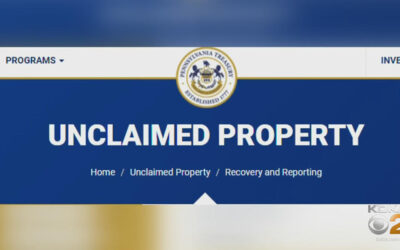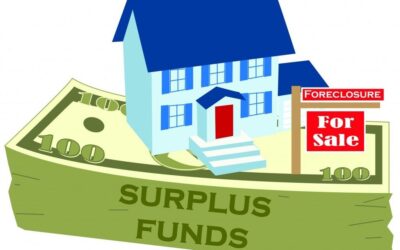Are you intrigued by the idea of investing in real estate but not sure where to start? One avenue worth exploring is tax lien properties. These properties can offer a unique investment opportunity with the potential for high returns. In this guide, we’ll walk you through the process of how to find tax lien properties step by step, making it easy for beginners to dive into the world of property investment.
Understanding Tax Liens
Before we delve into the how-tos, let’s cover the basics. A tax lien is a legal claim placed on a property by the government when the property owner fails to pay their property taxes. Tax liens act as a way for local governments to recover the unpaid taxes. When you invest in a tax lien property, you’re essentially paying off the delinquent taxes, and in return, you gain the right to collect the debt from the property owner.
Read More: Motivated Seller Leads: Order Now or Generate Yourself
How to Find Tax Lien Properties in 3 Steps
Step 1: Research is Key
When it comes to finding tax lien properties, research is your foundation. It’s the starting point that will guide you towards potential investment opportunities. Here’s how to dive into the research process:
1.1 Explore County Records:
County records are a goldmine of information. Local governments maintain records of properties with unpaid taxes, and these records can help you identify tax lien properties. Look for the term “property tax debt” and related phrases when searching these records. This step ensures you’re off to a solid start by narrowing down properties that could be ripe for investment.
1.2 Tap into Online Databases:
In the digital age, online databases are treasure troves of data. Various websites offer information on tax lien properties. A quick search using keywords like “tax lien listings” and “tax lien auctions” can lead you to platforms that provide valuable insights. These databases make your research more efficient, allowing you to explore a range of properties from the comfort of your screen.
1.3 Use Synonyms and Related Terms:
To widen your net, incorporate synonyms and related terms into your research. For example, “property tax debt” can also be referred to as “delinquent property taxes.” Similarly, “tax lien auctions” can be associated with terms like “property tax sales.” By using varied terms, you increase your chances of finding relevant information that might not have surfaced using just one set of keywords.
1.4 Seek Local Knowledge:
Don’t underestimate the power of local knowledge. Engage with real estate agents, professionals, and even fellow investors who have experience with tax lien properties in your area. Their insights can provide you with a unique perspective and potentially lead you to hidden opportunities.
Incorporate terms like “discovering tax liens,” “locating tax lien properties,” and related synonyms throughout your research process. This approach helps in establishing a strong semantic SEO foundation, making your content more relevant to search engines and easily accessible to anyone interested in venturing into the world of tax lien investments.

Step 2: Attend Tax Lien Auctions
Attending tax lien auctions is a pivotal step in your journey on how to find tax lien properties. These auctions are where the action happens, where potential investors like you get the chance to acquire tax lien properties. Here’s how to navigate this exciting phase:
2.1 Choose Between Online and In-Person Auctions:
Tax lien auctions can take place in two main formats: online and in-person. Online auctions offer convenience, allowing you to participate from anywhere with an internet connection. In-person auctions provide a hands-on experience, letting you see and feel the energy of the bidding process. Depending on your preference and location, choose the auction type that suits you best.
2.2 Set a Budget:
Auctions can be exhilarating, but it’s essential to keep a level head, especially when it comes to bidding. Before you participate, set a budget that aligns with your financial capabilities. Bidding wars can heat up quickly, and you don’t want to end up exceeding your limits in the heat of the moment.
2.3 Do Your Homework:
Just like you did in the research phase, knowledge is your ally. Before the auction, research the properties that will be up for bidding. Take note of their backgrounds, potential values, and any potential red flags. Armed with this information, you’ll be better prepared to make informed decisions during the auction.
2.4 Bid Strategically:
Bidding in tax lien auctions requires strategy. Start by observing the bidding patterns of experienced investors. Don’t jump in right away; give yourself time to get a feel for the pace. When you’re ready to bid, avoid getting caught up in bidding wars that push you beyond your budget. Strategically bidding on properties that align with your investment goals is key.
2.5 Keep Learning:
Attending tax lien auctions is a learning experience in itself. Each auction teaches you something new about the process, market dynamics, and investor behavior. Even if you don’t win a property in your first auction, the insights gained will be valuable for future endeavors.
Throughout this step, incorporate phrases like “bidding at tax lien auctions” and “successful auction strategies” to align with semantic SEO principles. These phrases not only enhance the search engine visibility of your content but also provide readers with actionable insights they can apply when attending tax lien auctions.
Step 3: Explore Alternatives
While tax lien auctions are a popular avenue for finding tax lien properties, there are alternative methods that can lead you to hidden opportunities. These creative approaches can provide a fresh perspective and potentially uncover properties that others might have overlooked. Let’s explore these innovative methods:
3.1 Attend Networking Events:
Networking can open doors you never knew existed. Attend real estate seminars, investment workshops, and local meetups. Connecting with fellow investors, real estate agents, and industry professionals can provide insights and tips on how to find tax lien properties that might not be publicly advertised.
3.2 Join Tax Lien Associations:
There are associations and clubs dedicated to tax lien investing. Joining these groups allows you to tap into a community of like-minded individuals who share their experiences, knowledge, and strategies. These associations often organize events and share valuable resources that can aid your search.
3.3 Participate in Online Forums:
Online forums and discussion boards are virtual gathering places where investors share information and engage in conversations. These platforms are excellent for seeking advice, asking questions, and learning from experienced investors who have explored various avenues for finding tax lien properties.
3.4 Leverage Social Media:
Social media platforms are not just for personal use. They also offer groups, pages, and profiles dedicated to real estate and tax lien investments. Engaging with these communities can provide insights and keep you updated on the latest trends and opportunities in the tax lien property market.
3.5 Think Creatively:
Sometimes, unconventional methods yield the best results. Think outside the box and explore unique ways of discovering tax lien properties. This could involve collaborating with property managers, partnering with local governments, or even conducting your own research through public records.
Conclusion
You’ve now unlocked the basics on how to find tax lien properties. Armed with knowledge, research, and a strategic approach, you’re ready to step into the world of tax lien investments. Remember, while the potential for profit is promising, thorough research and cautious decision-making are your best allies.
Whether you’re a seasoned investor or new to the real estate game, understanding tax lien properties is a smart move. By following these steps and using strategic keywords and synonyms, you’ll be well on your way to exploring this exciting investment avenue.
Mehedi Miraz is the passionate writer behind RealEstateTracer.com. With a love for writing and a fascination for the world of property, Mehedi has honed his expertise through years of dedicated research. His words breathe life into every aspect of the industry, making complex topics simple and enjoyable to explore. Armed with valuable insights, Mehedi is on a mission to share knowledge, empowering readers to navigate the real estate landscape with confidence.






